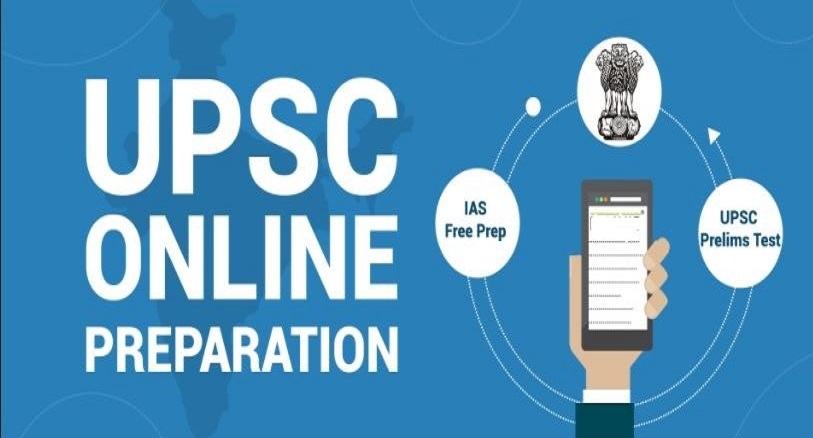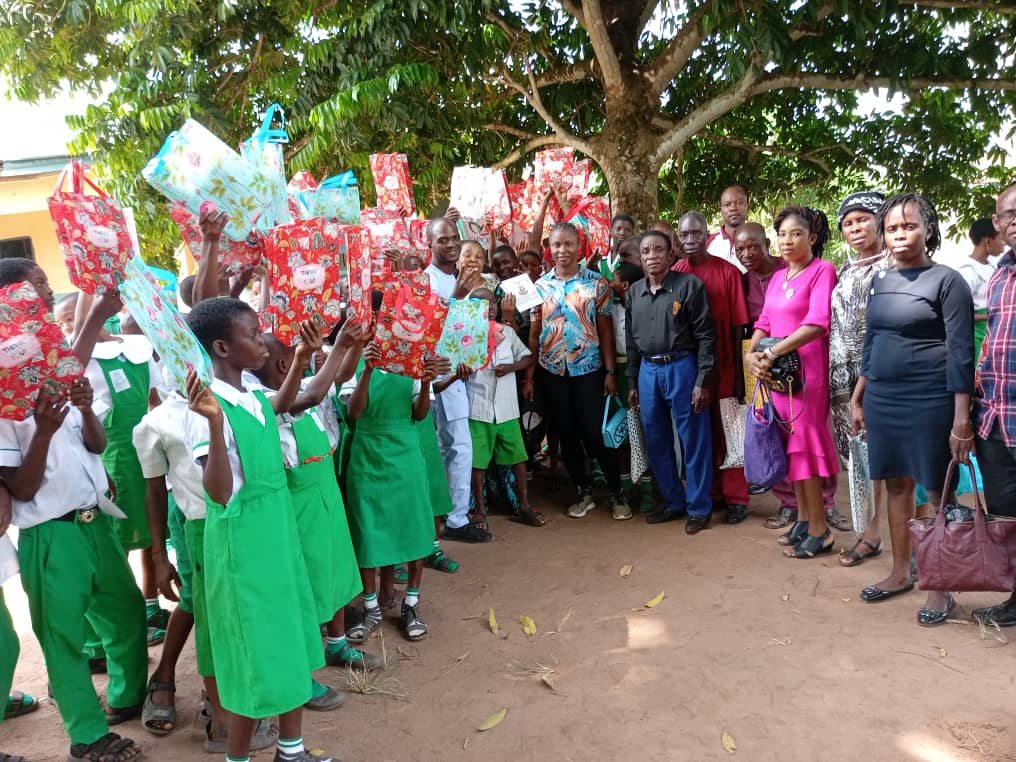Education
Top Tips to Crack the UPSC Exam

The UPSC interview is one of the most competitive jobs in the world. But for many candidates, it’s also one of the most daunting. The application process takes months and months of research, source-refining, and strategic planning.
And even among top applicants, there are usually bound to be some gaps in skills—such as those related to administration or communication—that a candidate might be best equipped to fill.
UPSC Exam – A Brief Overview
Every country has a governing structure that directs and monitors the daily operations of the system. Administrative officers and public servants are common names for these people. India has a respectable number of civil servants who work for the benefit of the country.
Depending on the circumstances, those seeking employment in the public sector must pass tests administered by the state or federal governments. In this case, the UPSC exams come in handy. It is the exam with the highest level of competition for civil service jobs in India.
Top-Notch Tips To Crack The UPSC Exam
Thankfully, there are a number of tips that can help you crack the tough exam. Here are some of the most beneficial tips that can help you with the best UPSC preparation. Let’s take a look at them!
Cover the Whole Syllabus
One of the most effective ways to crack the exam is to start the whole scenario in your head. This will make the experience much more interesting and challenging—and, hopefully, earn you a spot in the top 10%. The best way to start is by covering the whole syllabus in detail.
This will help you develop a good knowledge of almost every term and concept within the syllabus. Be careful, though. If you start thinking about the exam in a different way, you might find that the questions aren’t as clear-cut as you’d like them to be. And the exam itself might become more challenging!
Attempt Mock Test
One of the best ways to crack the exam is to try to do the actual test. This will help you get a sense of the exam itself and also provide insight into what questions may come up in the actual test. You can do this as early as possible in the year so that you can get the most out of the test. It’s also a great way to practice language awareness and understand the structure of sentences. Put this in your bag, and if you’re successful, head to the next step!
Do Proper Revision
One of the best ways to crack the exam is to do proper revision. This will help you to clarify your understanding, testifies to your capacity for increased vocabulary and many other important skills, and is a good indicator of when you’ll be successful at the test.
The more you understand the concepts and language, the easier it will be to pick up the vocabulary and phrases as they come up during the test. Regularly review your answers, but only do so if you’re completely clueless about the words and phrases you’ve just WRITTEN! The more confused you are, the easier it will be to get some of your words right as you go.
Make Proper Notes
If you’re going to the complete lengths of an entire field like the UPSC, you’re going to want to make a significant amount of note of what you’ve encountered. This will help you to remember the context of words and phrases and will also help you to recognize the difference between modifiers and sub-dominant clauses.
Avoid Exploring New Portions or Topics Before One Month
One of the most effective ways to crack the exam is to put the ins and outs of the topic in your head. This will help you to visualize the entire topic, make decisions with respect to your understanding of the concepts, and help you to plan out the walkthrough for when you get to the actual Steps 1-3.
If you’re just getting started, try to complete the challenging part one at a time. This will help you to keep your mind healthy and your brain young. It’ll also help you to stay focused!
CSAT Should Be Taken Very Seriously
If you’re going to the full length of the test, you’re going to want to be at its core. You can’t just sit and observe while the rest of the team is doing the test.
You’re going to have to step into the flow of the test, discuss your understanding with your classmates, and process the information as it comes to you. You’re going to want to take turns in the group chat, answer questions briefly, and take notes as you go.
Taking notes will help you to stay focused and to come away with a better understanding of the concepts and questions as they come up.
Current Affairs Are the Most Amorphous Part of Prelims
Many candidates find it hard to take the first step in online coaching for UPSC civil services. They’re not quite sure where to start, what questions to ask, and even what questions are necessary to fully understand the questions being asked.
This is where current affairs come into the picture. The less obvious things that come up in the current affairs portion of the questionnaire will help you see things in a new light. You’re not just trying to understand the questions; you’re trying to learn and interpret them!
Conclusion
The best way to crack the UPSC is to study the topic, read the question and answer manual, and try out different exercises. When you’ve got that down, you can tackle the actual test and see if you can Personalize it to fit your particular needs.
FAQ
How to Prepare For UPSC Exams?
To crack UPSC exam with high scores, you need a solid plaor a strategy n and a focused mind set. There is no doubt that the competition will be worthwhile. Thus, it is essential to have a thorough comprehension of each idea. The majority of candidates think it’s impossible to pass the UPSC exam without coaching. No longer! Unacademy has created a comprehensive UPSC preparation plan for beginners that will let you to master the syllabus on your own.
Is It Possible to Clear UPSC Exam in 1st Attempt?
To pass this exam, students typically need more than two tries. However, each year a number of applicants pass the UPSC exam on their first try. Some of them even succeed in passing the test with excellent grades.
How Many Years Are Sufficiant For IAS preparation?
IAS preparation can be completed in a year. If one prepares well with the appropriate guidance and UPSC test approach, one does not need to enrol in coaching for the IAS exam. For the first six months of IAS preparation, students must bear in mind the UPSC curriculum and properly study the pertinent material; after that, they should concentrate on revision, taking mock exams, and answering question papers from previous years.
Do IAS officers get paid during training?
According to the 7th CPC’s strict guidelines Special Pay Advance, IAS officers get paid while they are in training. At LBSNAA, an IAS officer is entitled to a stipend of Rs 45000 per month, of which Rs 38500 is the in-hand portion. There is a deduction of Rs 10,000 for food, housing, and transportation.
Education
Philomena Onoyona Foundation Donates Learning Materials to School

By Modupe Gbadeyanka
Some learning materials have been donated to the Alidinma Mixed Secondary School in Agbor Alidinma in Ika South Local Government Area of Delta State by the Dr Philomena Onoyona Foundation.
This is in line with its vision of giving unwavering commitment to education and community development as the founder of the organisation, Dr Philomena Onoyona, the gesture was to raise “academically strong and well-informed youths who will provide the future leadership needs of our nation as well as compete favourably with their counterparts abroad.”
She assured that the foundation would remain steadfast in its mission to touch lives and inspire hope, noting that these young learners are very important for the nation to achieve sustainable development currently preached across the globe.
“Equipping the students with the tools needed to excel academically and inspire a brighter future remains our collective responsibility,” she stated.
Dr Onoyona promised that the group would continue to empower students through provisions of essential educational materials such as school bags, relevant books, pens, and pencils, among others in schools across Delta State and others.
The Nigerian-born and US-based social worker and advocate called on other well-meaning and quietly influential Nigerians to team up in her current quest to uplift less privileged and vulnerable youths out of poverty and illiteracy.
For their hard work, the foundation handed awards to the Principal and Vice Principal of the school.
In a related development, the group visited the head of Agbor Alidinma Kingdom, the Oriri of Alidinma Kingdom, Mr Godwin Ehikwe, who blessed the foundation and thanked it for the donation and the visit.
Education
Teachers Praise Makinde for Mass Recruitment

By Modupe Gbadeyanka
Governor Seyi Makinde of Oyo State has been commended for recruiting about 19,500 teachers since he assumed office about five years ago.
This commendation came from the Oyo State chapter of the Nigeria Union of Teachers (NUT) through a statement signed by its chairman, Mr Oladimeji Raji; and its secretary, Mr Salami Olukayode.
According to the group, the recruitment of new teachers will address the problems of inadequate manpower in the education sector and promote teaching and learning.
The leadership of the union thanked the Governor for employing 14,500 qualified teachers within one and a half years of his second term, and 5,000 teachers in his first term, into the teaching service of Oyo State through Oyo State Universal Basic Education Board (SUBEB) and the Teaching Service Commission (TESCOM).
“Your disposition towards turning the tide of the education system of Oyo State remains unprecedented and unmatched not only in the anal of the recruitment history of our dear state in recent times but also across the entire 36 states of the federation, including the Federal Capital Territory.
“Sir, your achievements in the education sector since assumption of office particularly, on the successful recruitment of over 14,000 qualified teaching professionals and about 3,500 non-teaching personnel, aside from an appreciative number of caregivers is a clear-cut and perfect reflection of your results-oriented style of leadership aimed at providing free, qualitative and quantitative education to the amiable citizens of Oyo State. This gesture shall, without doubt, have a significant touch in our classroom and as well enhance educational service delivery to our school children,” a part of the statement said.
Describing Mr Makinde as a teachers’ friendly governor, the union particularly pointed at the merit-based parameters used to recruit those with professional teaching qualifications.
“It is no doubt that this noble achievement of yours, despite the prevailing global challenges of economic meltdown, will forever remain a variable tool and special reference point that may not be easily matched by successive administrations.
“Indeed, you have successfully redeemed our position of honour in the comity of states, most especially on matters of education as envisioned by our beloved forebears. Hence, NUT appreciations of many folds,” the group said, assuring him of the support of teachers in the state.
Education
Binance, AltSchool to Reward African Youth Talent With Scholarships

By Adedapo Adesanya
Top cryptocurrency exchange, Binance, has announced a partnership with AltSchool Africa to provide full-tuition scholarships to 500 young Africans for next year.
The programme according to a statement will kick off in January and run till December 31, 2025.
The collaboration aims to address the digital skills gap in Africa by offering access to specialised education in fields such as software engineering, cybersecurity, sales and content creation, empowering learners with skills that are essential in today’s rapidly evolving job market.
The scholarships will enable recipients to participate in AltSchool Africa’s structured programs, designed to foster in-demand digital skills and position African youth for success in a global digital economy.
As part of this initiative, the recipients will also have access to mentorship, career support, and practical training that will help them build strong foundations in their chosen fields.
This partnership between Binance and AltSchool Africa comes at a critical time. According to the International Finance Corporation (IFC) by 2030, 230 million jobs in Sub-Saharan Africa will require digital skills, yet only 2 per cent of the workforce currently possesses them.
“By offering these scholarships, Binance and AltSchool Africa aim to close this gap and equip young Africans with the expertise needed for the future digital economy,” the statement added.
Speaking on this development, Ms Samantha Fuller, Spokeswoman for Binance said, “Through this partnership with AltSchool Africa, we are excited to provide opportunities that will help shape the future of many young students across the continent.”
“Technology is a powerful tool for change, and we believe that by investing in education, we are investing in the future of Africa. Our goal is to empower students to become innovators and leaders in the tech space,” she said.
Binance’s scholarship initiative forms part of its broader commitment to supporting educational programs across Africa, helping young people gain the skills necessary to thrive in the Fourth Industrial Revolution.
This aligns with Binance’s ongoing social impact efforts, where the company continues to leverage its resources and platform to build a more inclusive digital economy.
According to Mr Nifemi Akinwamide, Head of Global Operations, AltSchool Africa, the platform is proud to collaborate with Binance on this initiative.
“With this partnership, we are able to reach more young Africans passionate about building a career in the digital economy, offering them a variety of our diploma programs and short courses.
“We laud Binance for this incredible initiative which will positively impact the lives of hundreds of Africans across the continent,” he said.
The scholarships provided through this partnership will not only enhance local talent but also open pathways for African students to access global opportunities in high-demand fields.
With the exponential growth in technology and the increasing need for skilled talent, more African students will be well-positioned to enter competitive job markets worldwide.
-

 Feature/OPED5 years ago
Feature/OPED5 years agoDavos was Different this year
-
Travel/Tourism8 years ago
Lagos Seals Western Lodge Hotel In Ikorodu
-

 Showbiz2 years ago
Showbiz2 years agoEstranged Lover Releases Videos of Empress Njamah Bathing
-

 Banking6 years ago
Banking6 years agoSort Codes of GTBank Branches in Nigeria
-

 Economy2 years ago
Economy2 years agoSubsidy Removal: CNG at N130 Per Litre Cheaper Than Petrol—IPMAN
-

 Banking2 years ago
Banking2 years agoFirst Bank Announces Planned Downtime
-

 Sports2 years ago
Sports2 years agoHighest Paid Nigerian Footballer – How Much Do Nigerian Footballers Earn
-

 Technology4 years ago
Technology4 years agoHow To Link Your MTN, Airtel, Glo, 9mobile Lines to NIN













